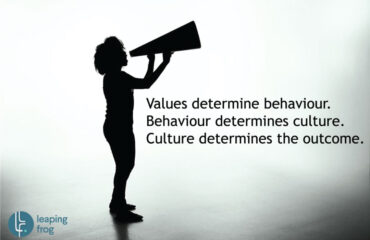
Cultivating Trust: The Cornerstone of Effective Leadership
Cultivating Trust: The Cornerstone of Effective Leadership, In the ever-evolving leadership landscape, one attribute stands out as the fulcrum of success – trust. Countless studies and research findings underscore the pivotal role that trust plays in the dynamics of a team and, consequently, the success of an organisation. It is not merely a soft skill but a strategic imperative that separates great leaders from the rest.
Cultivating Trust Research conducted by organisational psychologists and leadership experts consistently highlights the profound impact of trust on leadership effectiveness. A seminal study by Mayer, Davis, and Schoorman in 1995 established that trust is a multifaceted concept encompassing competence, benevolence, and integrity. Leaders who embody these qualities become the catalysts for a culture of trust, laying the groundwork for a thriving and resilient organisation.
A cascade of detrimental effects ensues when leaders fail to trust their teams. The temptation to micromanage becomes irresistible, diverting leaders’ focus from strategic initiatives to mundane day-to-day operations. This stifles innovation and relegates the leader to a managerial role devoid of the visionary essence that defines authentic leadership.
The repercussions extend beyond the leader’s actions. In the absence of leadership trust, a problematic dynamic often emerges, transforming leaders into unwitting rescuers and team members into passive victims. Research findings, such as those explored by psychologist David Emerald-Womeldorff, suggest that without a foundation of trust, leaders may inadvertently foster a culture of dependency. Team members, feeling unsupported, may default to a victim mindset, expecting the leader to swoop in and provide solutions to every challenge. Team members, feeling a lack of trust, may succumb to a dependence on the leader for decision-making. This learned helplessness hampers their ability to take initiative and make independent choices. The absence of empowerment creates a toxic culture where innovation is stifled and growth is stunted.
This not only stifles team members’ personal and professional growth but also burdens leaders with an unsustainable load. The cultivating Trust research underscores that a lack of trust can create a disempowering cycle, where leaders are overwhelmed by the weight of decision-making, and team members remain confined to a state of learned helplessness, hindering the overall progress and development of both individuals and the organisation. Building trust becomes not just a leadership choice but a strategic necessity for sustainable growth and success.
One prominent example illustrating the correlation between trust and leadership effectiveness is a study conducted by the Harvard Business Review. The research delved into Fortune 500 companies, revealing a direct link between high levels of trust within leadership and enhanced organisational performance. The study affirmed that leaders who inspire trust foster an environment where collaboration thrives, enabling teams to navigate challenges with agility and resilience.
Trust, once established, becomes a self-fulfilling prophecy. As the saying goes, “Trust begets trust.” When leaders trust their teams, team members reciprocate by cultivating a sense of ownership and responsibility. This reciprocal trust is the bedrock of a healthy organisational culture, fostering open communication, innovation, and a collective commitment to the organisation’s mission.
In contrast, a lack of trust can permeate an organisation, breeding a culture of mistrust that trickles down from the leadership team to every level. The detrimental effects of this mistrust are not confined to the internal dynamics but reverberate externally, affecting relationships with clients, stakeholders, and partners.
To break this cycle of mistrust, aspiring leaders must recognise the symbiotic relationship between trust and effective leadership. The journey begins with self-awareness, as leaders introspectively evaluate their trust-building behaviours. Are they fostering an environment where team members feel empowered, valued, and trusted?
Leadership development programs and training modules should prioritise cultivating trust as a core competency. These programs can draw inspiration from studies like that of Dirks and Ferrin in 2002, which identified trust-building behaviours such as consistent communication, fairness, and a genuine concern for team members’ well-being.
Trust is the cornerstone of effective leadership, shaping organisational culture and performance. Aspiring leaders must heed the lessons from research in this field, understanding that trust is not merely a nicety but a strategic imperative. By investing in trust-building behaviours and fostering a culture of openness and empowerment, leaders can unlock the full potential of their teams and propel their organisations to unparalleled heights of success.
…………………………………………………………………………………………………………………………………………………..
Leaping Frog, a new-age consulting firm, is an enabler and co-creator in enhancing people and organisational effectiveness. We love doing work in the areas of “Driving Organisational Change and Development”, “HR Systems and Talent Strategy”, and “Leadership and Life Coaching”.
Connect and share, for work and more.
Mail: comm@leapingfrog.in
Website: www.leapingfrog.in
Follow Us: https://lnkd.in/d7TQbsia




